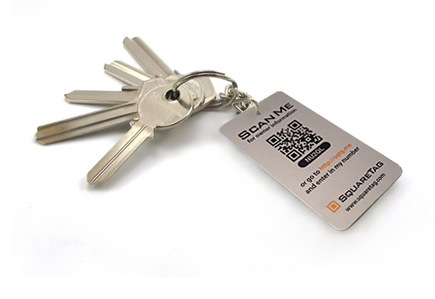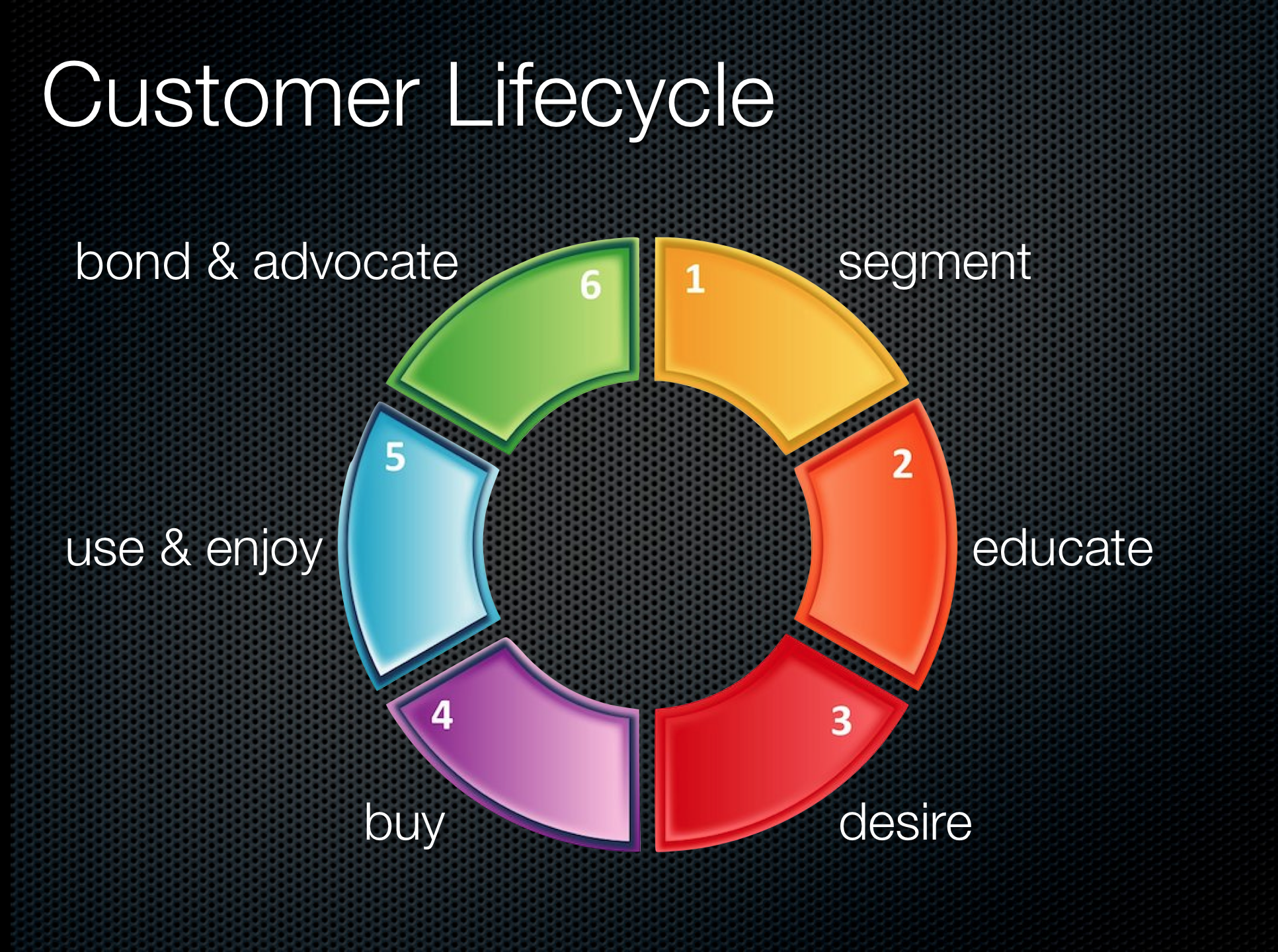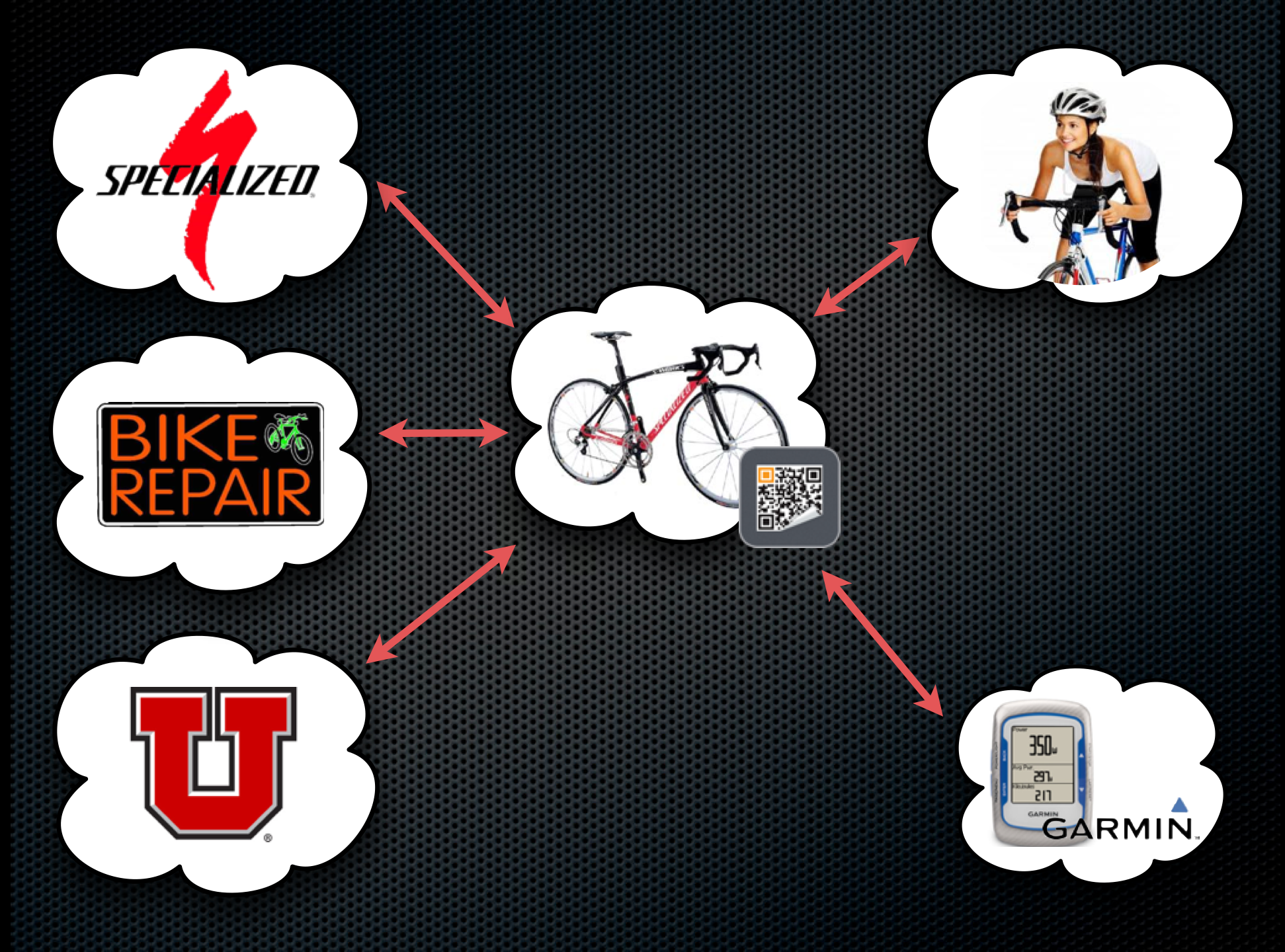Summary
SquareTag is designed to strengthen and enrich the relationships people have with companies and organizations by linking them together through products. This post explains why relationships matter, shows how SquareTag helps build more genuine relationships, explains the SquareTag value proposition, and concludes with a short case study.

I was the Co-Founder and CTO of iMall.com back in the '90s. iMall was an early ecommerce tools vendor. At one point we had over 50,000 merchants using our tools to sell online. We envisioned that ecommerce would change the nature of how things were bought and sold. To some extent it has, but by and large, ecommerce sites, from the smallest to the biggest are just glorified online catalogs not significantly different from their more mundane mail-order catalog cousins. I've always thought the Internet ought to allow us to do better—to really change how merchants, companies and service organizations interact and relate to people.
Our vision for SquareTag is just that: helping people and companies have better (i.e. less dysfunctional) relationships. We believe that products are natural connecting points between companies and their customers. Because SquareTag makes those products smart and gives them an online presence, SquareTag provides a powerful tool for building vendor-customer relationships.
When I speak in my blog or on stage about the Internet of My Things, I'm highlighting the natural and powerful feelings people have about their stuff. As Doc Searls says in Chapter 21 of The Intention Economy, "possession is 9/10ths of the three-year old". Our connections with our things are primitive and deep. We spend much of our time and resources acquiring, using, managing, and disposing of things.
Because of the strong feelings people have about them, products are a natural connecting point between manufacturers, retailers, service companies, and the customer. SquareTag is designed to deepen the connection between people and things by making the interactions richer. With SquareTag, any thing becomes a programming platform. Products become more useful, more helpful with the addition of SquareTag. As an example, SquareTag gives almost anything an online social profile.
Relationships, Not Just Data
Companies need new and better ways to relate to customers. An IBM study of over 1700 CMOs in 2012 (registration required) found that marketing organizations were good at using digital marketing tools in the transaction-oriented segments of the customer life cycle (segment and buy in the diagram below) but less adept at the more relationship-oriented segments (everything else).

Moreover, outperforming organizations spent over 50% more on relationship-oriented activities than underperforming organizations. In particular, they spent 65% more in the bond and advocate phase. Good companies have discovered that investing in building relationships with customers pays dividends.
Many companies confuse "having information" about their customers with having a relationship. That might constitute customer intelligence, but it's not a relationship. Relationships are built on common interests and an exchange of value. Both parties need to see that value or it's not a relationship. People are more likely to resent the fact that you know things about them outside of a relationship.
How SquareTag Builds Relationships
I like to use this example to describe how SquareTag enables better relationships between companies and people through the product:

Say Allison has just bought a new Specialized bike. If that bike is equipped with SquareTag, it could come from the factory with a pre-established relationship to Specialized. When Allison claims the bike in her personal inventory (normally by scanning the tag), she becomes the bike's "owner" and establishes the pre-eminent relationship with her bicycle. The bike's cloud (established by Specialized at the time the bike is manufactured) comes pre-populated with a lot of information about the bike including it's component mix.
Inside her personal inventory, Allison sees the bike and can click through to its profile to see specific information about her bike as well as notifications, reminders, offers, and other information. She can record information there—either manually or automatically. Using the bike's profile, she can ask questions of Specialized customer support, access customized FAQ lists, and even schedule maintenance appointments with the bike shop.
The bike shop that sold the bike to Allison also created a relationship with the bike. Using that relationship they record any initial assembly information and modifications. Later, they can store maintenance records right on the bike for Allison to see or augment as necessary.
Allison introduced the bike to her Garmin's personal cloud and the bike and bike computer can share information about rides. As a result of that relationship, the bike knows where and how far it's been ridden. This data might be merely logged or used to give Allison reminders about needed maintenance depending on what apps she's installed on the bike's cloud.
Allison happens to be a student and allows the campus police to create a relationship with the bicycle. Through that relationship, they can help her recover her bicycle if it gets stolen or message her (without revealing her personal information) if they find her bike or need her to move it.
Because SquareTag is architected as a system of decentralized clouds, each of these relationships is unique and can cause specific interaction patterns with Allison. For example, after a few years, Allison decides it's time to replace the chain on her bike. Rather than search the Web, she asks her bike (or to be more precise, it's cloud) for recommendations. She gets back purchase options from the manufacturer, the repair shop, and others of the exact chain she needs. The bike also knows about accessories Allison might like, shares recalls and warranties with her, and provides service reminders.
The SquareTag Value Proposition
The relationships that Allison built through her bike in the previous section have several important properties:
Personal and Directed—each relationship was directed not only at Allison, but made in the context of a common interest: the bike. Because Allison values her bike, she will also value any help in making it more useful or enjoyable. The relationship is personal without being threatening because of that context.
Privacy-Enhancing—SquareTag's unique architecture assures customers that their privacy is protected and increases personalization at the same time. We call this "privacy by design".
Continuously Interactive—the relationship allows Specialized and the bike shop to interact with Allison throughout the customer lifecycle, whether she's using the bike, getting it serviced, buying accessories, or just has questions.
Extensible—SquareTag is a programmable platform and so the nature of the relationship and the amenities it provides can be enhanced and changed over time as appropriate.
Flexible—SquareTag can provide different interactions and features on a per-relationship and per-product basis. The experience that Specialized has interacting with Allison through SquareTag is different from that of the bike shop. Each product can present a different experience on each channel.
Compelling—by including SquareTag with their products, companies can drive adoption and the creation of valuable customer relationships. SquareTag provides real value to customers and so they adopt it. Product registration is immediate and automatic.
Current—SquareTag links all kinds of products to the user's personal cloud. Allison's cloud doesn't just contain her bike, but lots of other products and services that she uses. This creates network effects. Apps in the bike and other product clouds use Allison's cloud to notify her of important events (e.g. "time to check your tires"). These properties provide an incentive for Allison to keep her contact information current and to maintain the relationship.
Transferable—suppose Allison sells her bike, she can transfer the bike's cloud to the new owner with no loss of data and without revealing or losing control of her own data. For high value items that might change hands several times during their lifetime, companies can engage second-hand owners in the same way they engage the original buyer.
These properties combine to create relationships that are genuine, varied, and relevant. Both Allison and the companies connected to her bike see value from the connections that SquareTag provides and thus use and maintain them.
Case Study: University of Utah
The University of Utah police department approached Kynetx with a problem. Bikes that were lost or stolen and later recovered carried no way for the police to return them to their owner. The department didn't want to run a registration program.
Using SquareTag, Kynetx created a program to help. We provide SquareTags to the University police that have a pre-established relationship between the unclaimed bike cloud and the police department. The department holds "bike rodeos" where they give out and configure tags. Every configured tag creates a chance to win a bike lock. By claiming the tag, the owner creates a personal cloud and establishes a direct relationship with the bike.
Once the tag is claimed, there are three distinct behaviors depending on who is interacting with the bike:
- When the students scans the tag or otherwise interacts with the bike's cloud, they see the various configuration screens. They usually do this once unless the bike is lost or stolen and they want to mark the bike as "missing."
- When a member of the police department scans the tag or enters its unique code into their computer, they see a message box that allows them to contact the student who owns the bike. They can do this without the student revealing private data.
- When anyone else scans the tag they get an innocuous message.
This system met the University's needs as well as providing a valuable service to owners by keeping their bicycle safe.
Beyond CRM
Using SquareTag companies can engage in a new kind of customer relationship management that does more than store contact information and interaction history. SquareTag provides a way to establish genuine relationships that provide continuous interaction throughout the customer life-cycle. This changes "relationship management" into "relating."
SquareTag is open for business and ready to use. We're anxious to find new ways to use SquareTag to help businesses create better relationships with their customers. Let us know how we can help.




